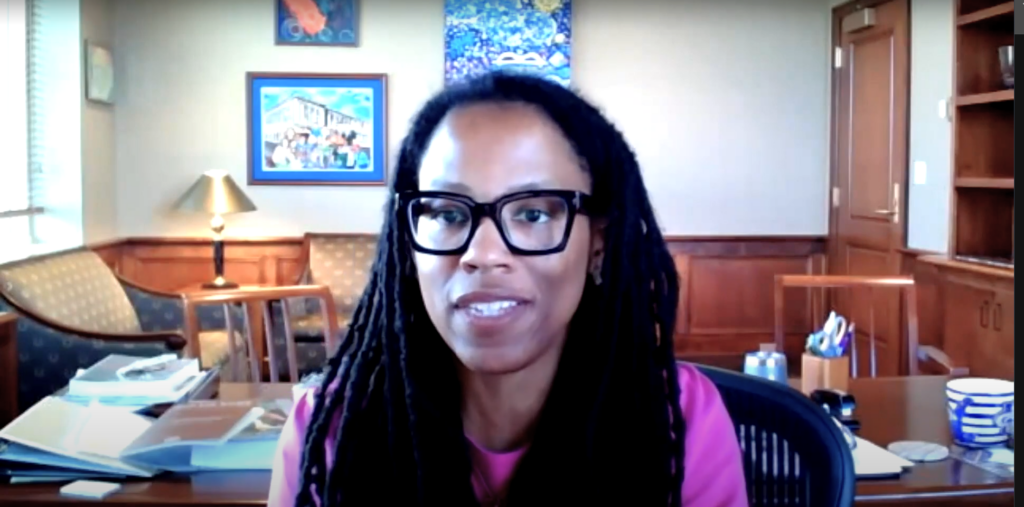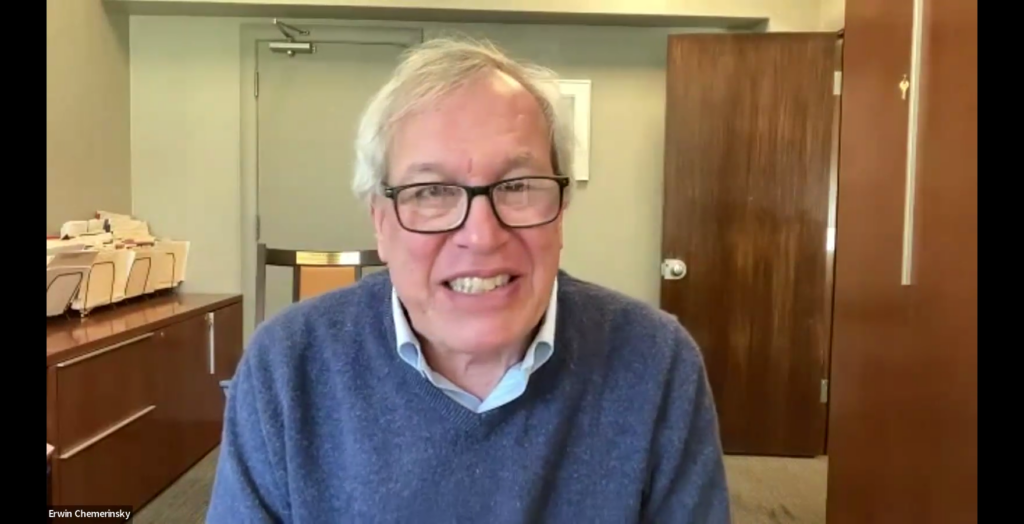AALS hosted two webinars in April: How to Become a Law Professor, which provided resources, advice, and practical demonstrations to assist potential law school teachers with the academic job market, and a preview of the upcoming Supreme Court term for emeritus and retired law faculty.
How to Become a Law Professor
For the second time, AALS offered the How to Become a Law Professor Webinar to demystify the hiring process for aspiring faculty and career professionals alike. AALS created the Becoming a Law Teacher project (teach.aals.org) in 2019 to provide resources and knowledge intended to help a broader, more diverse group of candidates access and succeed when applying for careers in the legal academy.
While law students may look to their career counseling offices for advice post-graduation, most law faculty join the academy because they have been directly encouraged by one of their own professors. Only a small segment of law schools are able to provide dedicated career counselors for students who are looking to become law professors.

The How to Become a Law Professor Webinar brought together panelists that included recently hired law faculty, experienced hiring chairs, and current deans to provide an overview of resources that AALS offers to assist and support candidates before, during, and after the hiring process.
Topics ranged from concrete actions that law students can take while in law school to make them more competitive candidates when applying for law teaching jobs to different pathways for entering legal academia. Panelists and AALS staff outlined the nuts and bolts of the hiring process including the typical hiring cycle, what to expect at different phases of the hiring process, and tips for an effective job talk.
AALS staff also provided a hands-on demonstration of the Faculty Appointments Register from the candidate’s perspective.
The recorded webinar is available to watch on demand as part of the multimedia resource library on Becoming a Law Teacher.
Supreme Court Preview

This discussion of the upcoming Supreme Court term for retired/emeritus faculty featured a diverse group of constitutional law experts offering their insights into some of the most interesting and potentially consequential cases to be decided. Cases included United States v Rahimi, regarding the Second Amendment; two cases involving NetChoice, LLC, regarding online content moderation; FDA v Alliance for Hippocratic Medicine and Moyle v United States, both regarding pregnancy healthcare; the Chevron doctrine and other administrative cases; and two cases regarding criminal law and evidence.
The recorded webinar is available to watch on-demand.
